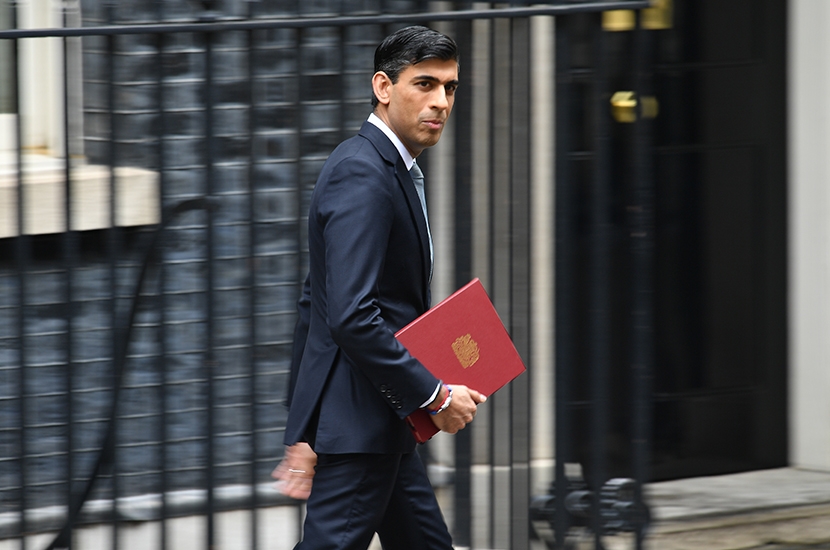It’s not axiomatic that taxes must rise to pay for the pandemic, if you seriously believe the surge in growth, jobs and prosperity that will follow the rollout of a hyper-efficient national vaccination programme will generate sufficient revenues for Rishi Sunak to stabilise the public finances, albeit at the highest level of debt ever seen in modern times. On the other hand, the Chancellor is surely pondering this question: in the current mood of public gratitude for the NHS and government support for the economy, there must be taxes I can tweak that won’t lose sackloads of Tory votes and might chip the peak off the debt mountain — so where are they?
We can probably dismiss, for example, the shift to ‘pay per mile’ road pricing for motorists reportedly being mooted by the Treasury to replace the £40 billion a year it might lose if sales of new petrol and diesel cars are banned by 2030. Long kicked around as a concept, road pricing is fraught with difficulties as to whether it can differentiate between journeys that are vital, economically useful or purely for fun, and motorists who could easily switch to public transport from those who haven’t seen a bus in their district since 1985. Only in cities such as Singapore and Stockholm, where citizens do what they’re told, has it been tested even in simple form. And no one thinks it would generate a net increase in tax revenues, rather than at best partially filling a new hole. So let’s park that one, Chancellor.
But how about a ‘realignment’ of capital gains tax to match income tax rates? Now — in a Scrooge-like way — you could be talking turkey. CGT is currently set at a maximum of 20 per cent on most assets and 28 per cent on properties other than main homes, whereas top-rate income tax is 45 per cent. Exemptions would need to be preserved for genuine entrepreneurs and start-up investors, but upping CGT rates and cutting allowances could raise an estimated £14 billion a year, chiefly from second-home sellers and those who have benefited from the relative strength of stock markets.
Better still — in terms of finding targets that command little sympathy — would be an attack on ‘carried interest’, the device that allows partners of private equity firms to treat their fat profits as capital gains rather than income. Such a move would, we’re warned, ‘drive dealmakers out of the country’. But a veteran business-builder who has survived bruising encounters with this ruthless sector offers a balanced summary: ‘There are a lot of arses in private equity.’
Exotic trade
China and 14 other Asia-Pacific countries have signed a free trade deal, the Regional Comprehensive Economic Partnership, that encompasses some 30 per cent of global economic output. It’s likely to accelerate a shift of power and influence towards China and away from the US (Donald Trump having pulled out of another set of trade talks, the Trans-Pacific Partnership), while boosting prospects for Australia and New Zealand. Already bigger than the EU, the new bloc will be even more potent if India eventually joins. As for future UK business in exotic places, so far we have only International Trade Secretary Liz Truss’s celebrated ‘blue-cheese treaty’ with Japan. But don’t despair: she was reported this week to be finalising post-Brexit ‘continuity agreements’ with Ukraine and the Ivory Coast.
Joint efforts
Industrial news that looks beyond the pandemic is generally good news, so I was glad to see Rolls-Royce announcing both a project to test ‘100 per cent sustainable’ aviation fuel in its jet engines and a consortium to build ‘flat-packed’ mini nuclear power stations — though I hope they come with clear assembly instructions.
Another story that caught my eye, coinciding with the Prince of Wales’s speech to the Bundestag on Anglo-German co-operation, was BAE’s £1.3 billion contract to build components in its Lancashire factories for 38 Eurofighter Typhoon aircraft destined for the German air force. Amid Downing Street’s ‘final showdown’ with Brussels, it’s worth remembering the multilayered nature of our relationships with Europe beneath the headlines. I saw one aspect of this for myself when I lectured at the Nato Defence College in Rome and shared a staff car with a steely Luftwaffe general — who turned out to be keen to share happy memories of pilot training at RAF Coningsby in Lincolnshire. The Eurofighter project, I read, ‘sustains more than 100,000 jobs in 400 companies across Europe’. Better, of course, to collaborate on vaccines than war machines, but the value of such joint efforts goes far beyond the price of any contract.
Holes in the ground
Which of us has not sat in a jam on the A303 west of Amesbury and cursed drivers ahead who have slowed to gawp at Stonehenge? Many will have filled the tiresome hiatus with family arguments about whether a road tunnel under the ancient site would be a blessing or a desecration. But now the £1.7 billion project has won ministerial approval, no one can deny that it is the purest possible illustration of HM Treasury’s abiding belief in John Maynard Keynes’s maxim: ‘To dig holes in the ground… will increase not only employment but the real national dividend of useful goods and services.’
It’s also a provocation to archaeologists and druids who passionately oppose the scheme. But I refer them to an earlier passage in Keynes’s General Theory, in which he advocates, as an even more effective stimulus, the Treasury burying old bottles full of banknotes and leaving it to private enterprise to dig them up again. The equivalent in this case would be to boost recovery by starting the Stonehenge diggings next year — but allow protestors to halt them as soon as the economy is back up to speed, then invite private-sector tenders to fill them in again when we hit the next downturn. Is that the real Treasury plan?







Comments